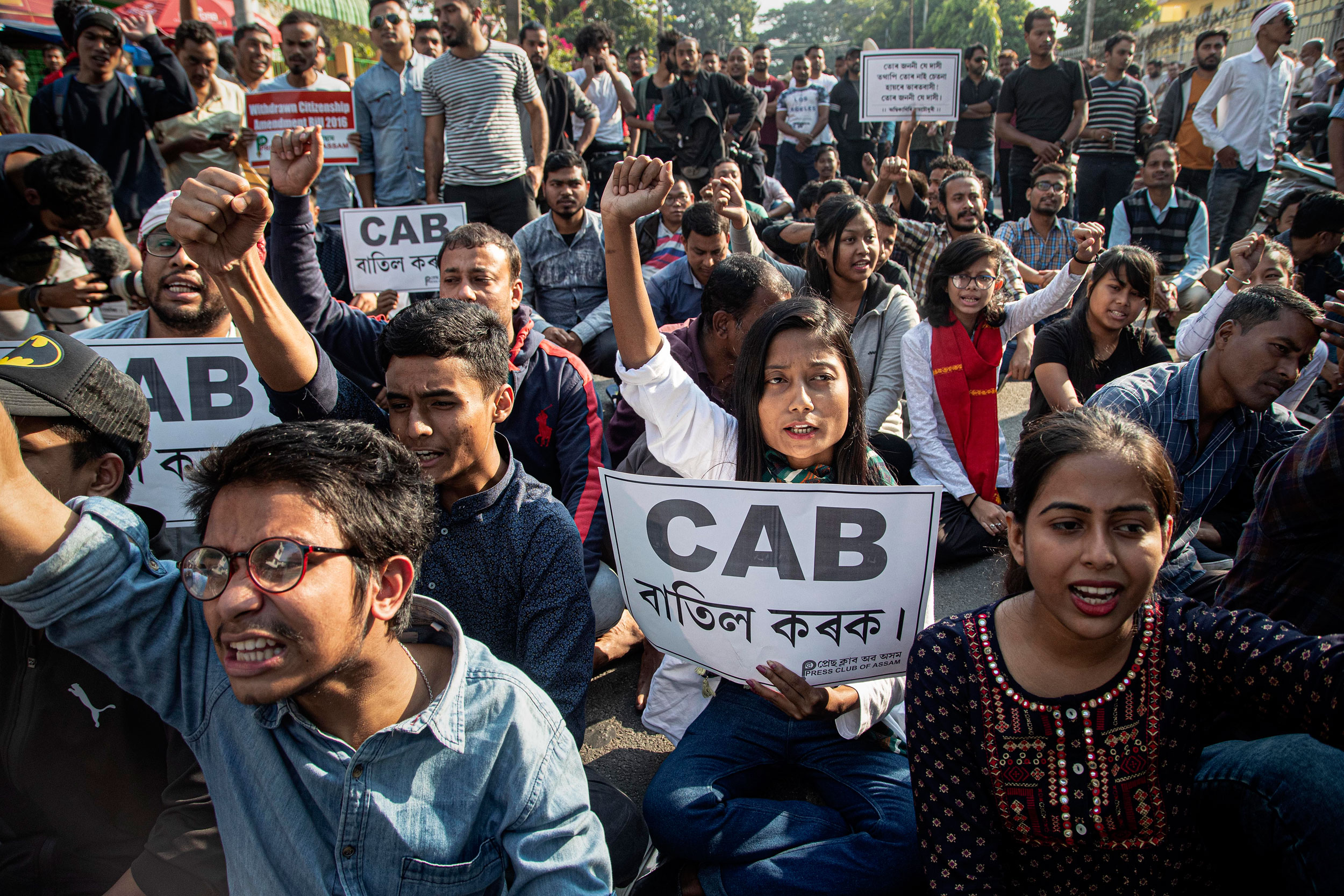America’s religious-freedom monitor has recommended sanctions on Amit Shah over the Citizenship (Amendment) Bill, which it described as “a dangerous turn in the wrong direction” that was against India’s Constitution.
The United States Commission on International Religious Freedom (USCIRF) on Monday urged Washington to consider sanctions against the Union home minister and “other principal leadership” over the religion-specific bill, prompting New Delhi to protest that the statement was inaccurate and unwarranted.
“The CAB enshrines a pathway to citizenship for immigrants that specifically excludes Muslims, setting a legal criterion for citizenship based on religion. The CAB is a dangerous turn in the wrong direction; it runs counter to India’s rich history of secular pluralism and the Indian Constitution, which guarantees equality before the law regardless of faith,” the commission said.
“In conjunction with the ongoing National Register of Citizens process in Assam and (the) nationwide NRC that the home minister seeks to propose, the USCIRF fears that the Indian government is creating a religious test for Indian citizenship that would strip citizenship from millions of Muslims.”
The commission, which describes itself as “an independent, bipartisan federal government entity established by the US Congress to monitor, analyse and report on threats to religious freedom abroad”, issued the statement soon after the bill cleared the Lok Sabha on Monday night.
Created by The International Religious Freedom Act, the commission monitors the universal right to freedom of religion or belief abroad — using international standards — and makes policy recommendations to the President, secretary of state, and Congress. It submits an annual report to the state department.
“If the CAB passes in both Houses of Parliament, the United States government should consider sanctions against the home minister and other principal leadership,” it said.
The statement opens up another front, apart from the Kashmir clampdown, on which the Narendra Modi government will have to fight a perception battle in Washington. It was because of the religious freedom commission that then chief minister Modi was denied a US visa in 2005 following the Gujarat carnage.
In a related statement, the House of Representatives’ foreign affairs committee tweeted: “Religious pluralism is central to the foundations of both India and the United States and is one of our core shared values. Any religious test for citizenship undermines this most basic democratic tenet.”
Reacting only to the commission’s statement, foreign ministry spokesperson Raveesh Kumar said: “The statement made by the USCIRF on the Citizenship (Amendment) Bill is neither accurate nor warranted.”
He added: “The bill provides expedited consideration for Indian citizenship to persecuted religious minorities already in India from certain contiguous countries. It seeks to address their current difficulties and meet their basic human rights. Such an initiative should be welcomed, not criticised by those who are genuinely committed to religious freedom.”
The ministry said the bill does not affect the existing avenues available to all communities interested in seeking citizenship. It said India’s recent record in granting citizenship would corroborate the government’s impartiality, but provided no data.
According to the ministry, neither the Citizenship Bill nor the NRC process seeks to remove the citizenship of any Indian of any faith.
“Suggestions to that effect are motivated and unjustified. Every nation, including the United States, has the right to enumerate and validate its citizenry, and to exercise this prerogative through various policies,” it said.
It questioned the US commission’s standing in the matter and said it was not surprised at the statement, given the organisation’s record.
“It is, however, regrettable that the body has chosen to be guided only by its prejudices and biases on a matter on which it clearly has little knowledge and no locus standi.”
Concern had been expressed in Washington over the Citizenship Bill earlier too. The subject had come up during a hearing on human rights by the US House of Representatives’ committee on foreign affairs.
Brad Sherman, chairperson of the sub-committee for Asia, the Pacific and Non-proliferation, had asked whether it was a serious legislative proposal or a crackpot idea.
Informed that there was a bill, Sherman had asked whether the US government had condemned the idea of defining someone’s legal rights based on their religion.
“We are doing it right here,” he was told by Robert A. Destro, assistant secretary in the state department’s bureau of democracy, human rights and labour.










